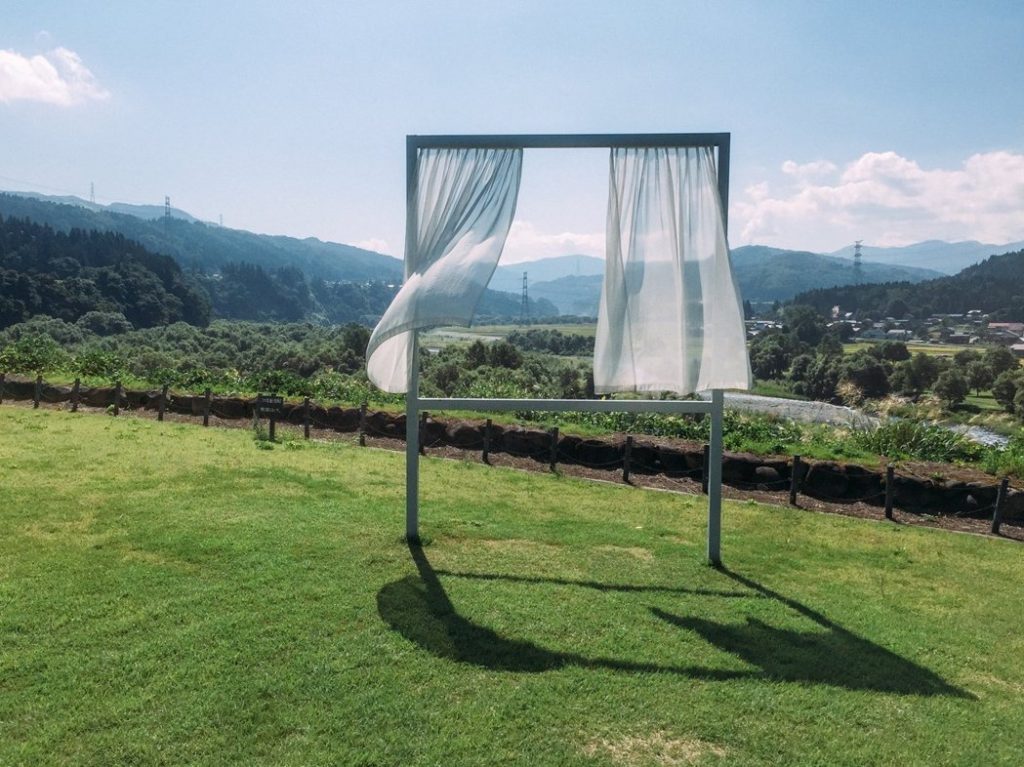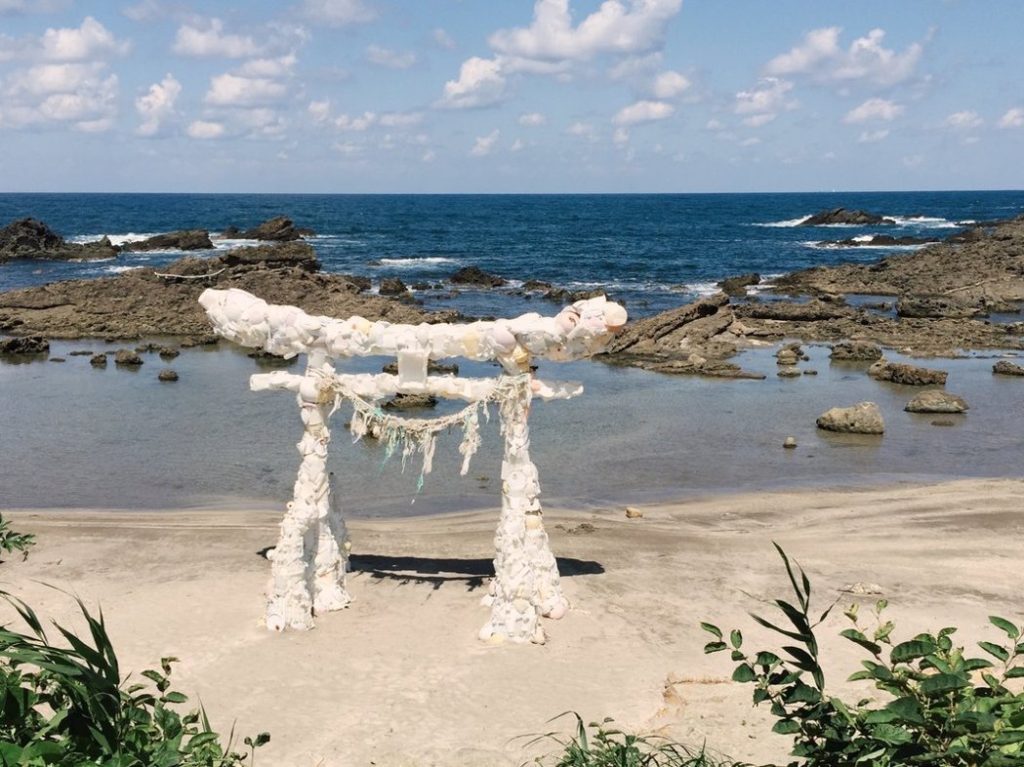FRAM KITAGAWA2020.05.25
Taiwanese web magazine “500 times”
featured Fram Kitagawa’s interview
Fram Kitagawa says ” When universal values starts changing, the role of art will be challenged by the society.“
By Hu Shih-en
Fram Kitagawa, a world-renowned art director, has directed international art festivals, including Echigo-Tsumari Art Triennale and Setouchi Triennale, over these 20 years since he started the “regional revitalization through art” initiative in late 1990’s. His committed art festivals have brought about communications and impact through collaboration between artists and local people as well as site-specific art works.
Due to the COVID-19 infection, his directed three art festivals, “Boso Satoyama Art Festival”, “Northern Alps Art Festival”, and “Oku-Noto Triennale” have been postponed and the 8th Echigo-Tsumari Art Triennale to be held in next year is facing a situation different from before.
What kind of difficulties is he experiencing as director? How has he been influenced? What does he think about the current situation? 500 times interviewed him under the theme “For the age of epidemics.”
500 times : How has the spread of the coronavirus infection affected your private life and work? How are you spending your days in this situation?
Kitagawa : I work not only in Tokyo where my office is located, but also in the areas where the art festivals take place, including Ichihara, Omachi and Suzu. Therefore, I feel frustrated with online meetings instead of traveling and communicating in person. Since I stay home as much as possible, all I do is watching TV, reading newspapers and books, and cooking meals. It’s provided me an opportunity to learn TV culture and realize the gaps between media by reading the context behind the words. Obviously, the most significant thing is that I can have sufficient time to think about contemporary society.

500 times : There must be many stakeholders in organizing an art festival. To determine its postponement, what is the criteria for the director, artists, executive committee, and local residents to make a decision, and how and who do you negotiate, and what is the hard part? As an example, would you tell us about Ichihara Art x Mix, which was scheduled to open in this March and first affected by the pandemic?
Kitagawa : While following the regulations of the national and local governments, I give priority to local people‘s feeling about influx of people from outside. I try to have intensive discussions and reach deep understanding with the executive committee, which is formed mainly by the local government.
It depends on whether we have a good grip of motivation, schedule, and economic condition of the artists or not. In case of Ichihara Art x Mix, when its postponement was determined, half of the artworks had already been completed. Then we stopped all the activities and decided to start working on the rest of the artworks three months before next year`s opening. As most of the artists had visited the sites, the works could be done as planned, even if they could not come back again. However, performing arts events would be troublesome to re-plan, and the tours would be difficult to prepare.
500 times : As the director of the art festivals, how are you communicating with those involved to build trust? Do you have any fear or anxiety for the unknown? While dealing with complex emotion, how are you leading art festivals to have an appropriate decision?
Kitagawa : I exchange accurate information and tell my thoughts clearly. I make efforts not to cause financial troubles, but persuade the executive committee to understand that the budget would exceed what was initially planned.

500 times : The spread of infections has brought us a new relationship between people’s lives and internet. For instance, internet shopping, online meeting, and online live are becoming widespread. In this day and age, have you thought about new possibilities of art festivals? How would the importance of site-specific art be changed in art festivals? Could you tell us how art festivals would be?
Kitagawa : We have focused on creating site-specific artwork that is made possible in particular time and space of rural areas to stand against globalization of financial capital and communication as well as cultural homogeneity of urban societies. However, artists could hardly travel under the current circumstance. I don’t know how volunteers and visitors would travel either. Thus, site-specific artworks presented through internet would device a creative solution and a role of video art would become crucial. I think the current circumstance is challenging the creativity of artists to prevent border closure.
500 times : If the coronavirus pandemic were ended, and artists were free to come back to the sites and create artworks, and visitors were able to participate in art festivals, what message would you convey to artists and visitors as the director?
Kitagawa : I think more artworks would question the relationship between humans and nature in more depth. At the same time, communication by means of art would be indispensable. Especially, heath, food, transportation, energy, education and culture would be valued more than ever. Also, art would be challenged to play an important role when we see economy-oriented values changing.
This article is translated and published in English with permission of 500 times.
UPCOMING

TOPIC
4/23(火) 北川フラム塾 第30回 地方芸術祭と震災-奥能登を中心に(ゲスト:暮沢剛巳)
Exhibition
Oscar Oiwa solo exhibition:Oil Octopus in the era of turbulent at Shibuya Hikarie 8/,Apr.27-May.12
TOPIC
Uchiboso Art Festival will be held from March 23rd.
TOPIC
The Oku-Noto-Suzu Yassar Project has been launched.
TOPIC
Art Festivals and Exhibitions 2024